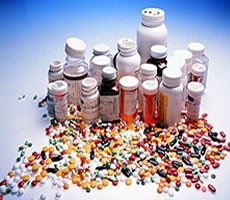
The African pharmaceutical sector is expected to grow tremendously in the coming years. The opportunity is such that public-private synergies are key to the development of the industry.
These were the conclusions that emerged from the first African Pharmaceutical Summit, held on September 23 and 24 in Hammamet, Tunisia.
With a compound annual growth rate (CAGR) of more than 10 percent, Africa is the second most dynamic pharmaceutical market after Asia Pacific, with pharmaceutical spending expected to reach US$30billion by 2016. Co-organised by the African Development Bank and the Africa Health journal, the African Pharmaceutical Summit drew over 130 participants from around the world.
The summit is the first platform to bring together high-level policy-makers, Ministers of Health, Industry, Trade, and Finance, CEOs, experts from pharmaceutical manufacturers, universities, institutions and organisations to debate the future strategies of Africa’s pharmaceutical industry.
The important meeting was an opportunity to highlight the need for public-private partnerships, which are more than ever necessary to seize opportunities in this sector and improve the health of Africans.
Abdellatif Mekki, Tunisian Minister of Health, expressed his support for the development of African partnerships in this emerging economic area. He said that such partnerships would significantly improve access to medicine and harmonisation of laws in Africa.
As the premier financing and development institution for Africa, the AfDB has a unique role to play in the public-private dialogue in the pharmaceutical sector. With this first edition of the African Pharmaceutical Summit, the Bank provides an opportunity to create a business-to-business platform aimed at building partnerships, strengthening collaboration and engaging key stakeholders in meaningful discussions around Africa’s pharmaceutical sector.
Mthuli Ncube, Chief Economist and Vice-President at the African Development Bank, pointed out: “With the current political momentum in pharmaceutical sector development in Africa, although the African pharmaceutical market represents only two percent in global terms, it is the fastest-growing in the world,” he said. “There is a window of opportunity considering the strong demographic dynamics and the growth of the consumer spending power in Africa, although the continent accounts for the bulk of global infectious disease burdens.”
Feng Zhao, Manager of the Health Division of the AfDB’s Human Capital Development Department, acknowledged that there are a number of challenges to overcome in Africa. In the context of the current financial crisis, huge up-front investments are needed to boost the industry, he said. “New business models and partnerships applicable to Africa should be designed to better meet the specificity of the continent,” he added. “We have already launched several initiatives and we continue to offer our support to develop the potential of this sector.”
The AfDB has embarked on an ambitious programme to support its Ten-Year Strategy for 2013- 2022. Through the Human Capital Development Department, the Bank has defined its priorities for the pharmaceutical industry supporting private-sector development and regional economic integration. These two pillars are pushing Africa to be a key player in the global pharmaceutical market.
Investments in skills and technology are also at the centre of the Bank’s development agenda. Given the specific nature of the African pharmaceutical industry, technology and innovation can be harnessed to accelerate inclusive growth and job creation in the sector.
The AfDB has undertaken several initiatives to assist the public and private sector, NGOs and institutes in Africa in the development of innovative solution in the health sector. In this context, the first edition of the African Pharmaceutical Summit celebrated 10 recipients of the AfDB e-health award. During the summit, the winners received a certificate recognising their innovative contributions and solutions in the emerging areas of e-health and m-health in Africa.